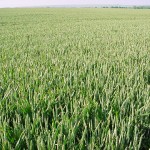Arabica futures rose for a second day on Wednesday after prices fell to a two-week low on Monday, buoyed by expectations for a shortage in arabica beans as Brazil, the worlds largest producer, saw its driest summer in more than four decades. However, an improved weather outlook limited gains. Robusta futures swung between gains and losses after falling for four straight days.
On the ICE Futures U.S. exchange, Arabica coffee for delivery in May traded at $1.9185 per pound at 13:22 GMT, up 0.16% on the day. Prices shifted in a daily range between $1.9150 and $1.9375 a pound. The contract closed 0.1% higher on Tuesday at $1.9155. Prices fell by 3.5% on Monday, having touched a two-week low of $1.8880.
Meanwhile in London, Robusta futures for settlement in the same month were down 0.28% at $2 134 per ton at 13:36 GMT. Prices swung between days high and low of $2 145.00 and $2 122.00 per ton, respectively. The contract lost 1.2% on Tuesday, a fourth straight daily retreat. Prices jumped 3.8% last week, having touched a one-year high of $2 218 on Wednesday.
Arabica has risen 70% this year, making it the top performer in the Standard & Poor’s GSCI gauge of 24 commodities, amid fears of a global supply shortage after Brazil, the worlds biggest producer of the coffee variety, saw its driest summer since 1972. The rally however has recently lost momentum as weather forecasting models predicted much-needed rain across the countrys main growing regions. Forecasts on Tuesday confirmed that outlook.
“The prospects of 2013/14 are more bullish because consumption numbers are strong,” said a European analyst, cited by CNBC. He predicted that consumption growth this year will exceed the long-term average of 3%.
Meanwhile, tighter supplies helped prices to rebound this year after three straight annual losses. According to data by Volcafe Ltd., a Swiss unit of commodities trader ED&F Man Holdings Ltd., global demand for arabica beans will outstrip supply by 5.3 million 60-kilogram bags in the 2014-2015 period, while shortages of the robusta variety will amount to 1.2 million bags. Arabica beans fell 23% last year.
Due to the smaller deficit, robusta beans widened their discount to the arabica variety by three times. The gap raised speculations that roasters may switch to the cheaper variety, which would eventually raise its price.
As a result, coupled with speculations that drought will reduce next year’s harvest, coffee growers in Vietnam, the largest producer of robusta coffee, are holding back sales and keeping record inventories. Growers have sold 50% of their record harvest that amounted to 1.7 million tons in the year started October, 10% below the average of the previous five years. According to data compiled by Bloomberg, inventories surged to 850 000 tons in the seven days through March 7th, a record for this time of the year.
However, easing shortage concerns to some extent, Brazil’s coffee export association Cecafe said last week that the nation’s ample inventories from the previous harvest will ease the effects of this year’s severe drought and also help boost exports by 6%. According to Cecafe, Brazil’s outbound shipments should jump to 33 million bags in 2014, up from 31.1 million in the preceding season.





